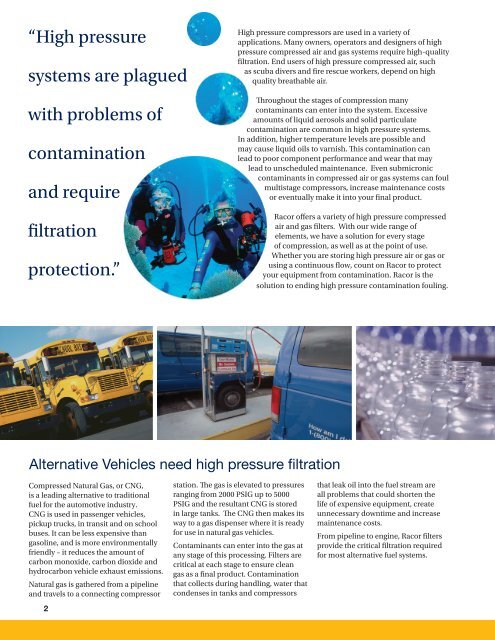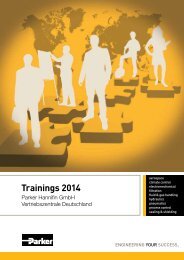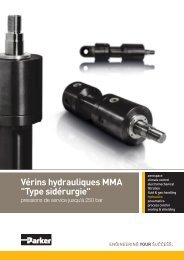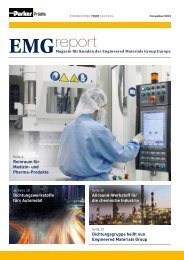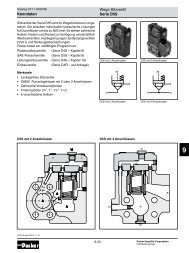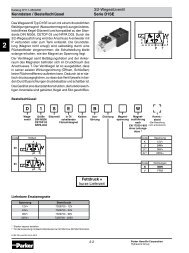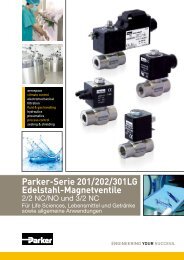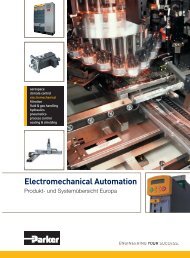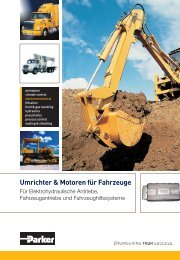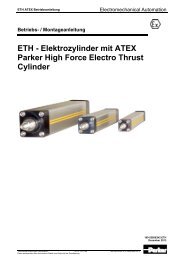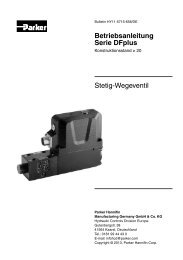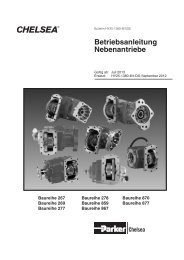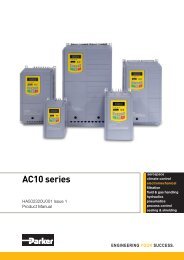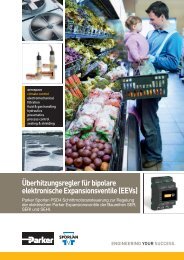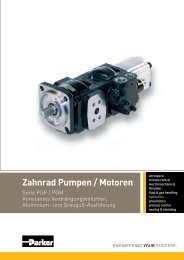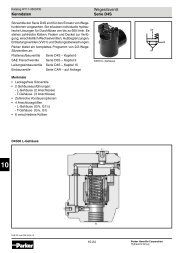Sales & Marketing Bulletins / Brochures - Parker
Sales & Marketing Bulletins / Brochures - Parker
Sales & Marketing Bulletins / Brochures - Parker
You also want an ePaper? Increase the reach of your titles
YUMPU automatically turns print PDFs into web optimized ePapers that Google loves.
“High pressure<br />
systems are plagued<br />
with problems of<br />
contamination<br />
and require<br />
filtration<br />
protection.”<br />
High pressure compressors are used in a variety of<br />
applications. Many owners, operators and designers of high<br />
pressure compressed air and gas systems require high-quality<br />
filtration. End users of high pressure compressed air, such<br />
as scuba divers and fire rescue workers, depend on high<br />
quality breathable air.<br />
Throughout the stages of compression many<br />
contaminants can enter into the system. Excessive<br />
amounts of liquid aerosols and solid particulate<br />
contamination are common in high pressure systems.<br />
In addition, higher temperature levels are possible and<br />
may cause liquid oils to varnish. This contamination can<br />
lead to poor component performance and wear that may<br />
lead to unscheduled maintenance. Even submicronic<br />
contaminants in compressed air or gas systems can foul<br />
multistage compressors, increase maintenance costs<br />
or eventually make it into your final product.<br />
Racor offers a variety of high pressure compressed<br />
air and gas filters. With our wide range of<br />
elements, we have a solution for every stage<br />
of compression, as well as at the point of use.<br />
Whether you are storing high pressure air or gas or<br />
using a continuous flow, count on Racor to protect<br />
your equipment from contamination. Racor is the<br />
solution to ending high pressure contamination fouling.<br />
Alternative Vehicles need high pressure filtration<br />
Compressed Natural Gas, or CNG,<br />
is a leading alternative to traditional<br />
fuel for the automotive industry.<br />
CNG is used in passenger vehicles,<br />
pickup trucks, in transit and on school<br />
buses. It can be less expensive than<br />
gasoline, and is more environmentally<br />
friendly – it reduces the amount of<br />
carbon monoxide, carbon dioxide and<br />
hydrocarbon vehicle exhaust emissions.<br />
Natural gas is gathered from a pipeline<br />
and travels to a connecting compressor<br />
2<br />
station. The gas is elevated to pressures<br />
ranging from 2000 PSIG up to 5000<br />
PSIG and the resultant CNG is stored<br />
in large tanks. The CNG then makes its<br />
way to a gas dispenser where it is ready<br />
for use in natural gas vehicles.<br />
Contaminants can enter into the gas at<br />
any stage of this processing. Filters are<br />
critical at each stage to ensure clean<br />
gas as a final product. Contamination<br />
that collects during handling, water that<br />
condenses in tanks and compressors<br />
that leak oil into the fuel stream are<br />
all problems that could shorten the<br />
life of expensive equipment, create<br />
unnecessary downtime and increase<br />
maintenance costs.<br />
From pipeline to engine, Racor filters<br />
provide the critical filtration required<br />
for most alternative fuel systems.


